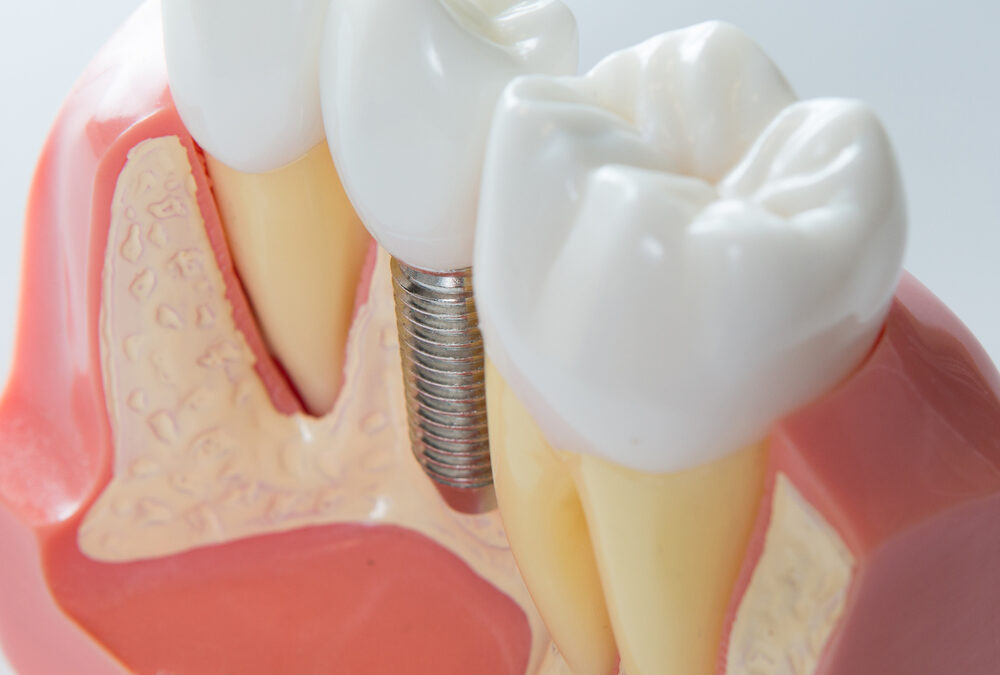Dental implants are a transformative solution for replacing missing teeth, offering patients a natural-looking and durable option to restore their smile. While dental implants are designed to last for decades, proper care is essential to ensure their longevity and to maintain overall oral health. In this article, we’ll explore essential tips for caring for your dental implants and discuss how to support patients experiencing anxiety about implant maintenance.
The Importance of Proper Dental Implant Care
Dental implants are crafted to mimic the function and appearance of natural teeth. However, they are not immune to the buildup of plaque and bacteria, which can lead to complications such as peri-implantitis—an inflammatory condition that affects the gum and bone surrounding the implant. By establishing a robust oral hygiene routine, patients can avoid these issues and protect their investment.
Daily Oral Hygiene Practices
1. Brush Regularly
Brushing twice a day is non-negotiable for dental implant care. Use a soft-bristled toothbrush to gently clean the surface of the implant, crown, and surrounding gum tissue. Electric toothbrushes can also be effective in removing plaque and reaching areas that are harder to access.
2. Flossing Matters
Flossing is critical for removing debris and plaque between the teeth and around the implant. Specialized floss designed for implants, such as super floss or interdental brushes, can be particularly useful. For patients experiencing anxiety about flossing near their implants, a water flosser might be a more comfortable alternative.
3. Rinse with Antimicrobial Mouthwash
Incorporate an antimicrobial mouthwash into your daily routine to reduce bacteria and maintain healthy gums. Opt for alcohol-free options to avoid irritation.
Professional Dental Care
1. Regular Checkups
Schedule biannual visits to your dentist for professional cleanings and implant evaluations. During these visits, your dentist can monitor the health of your implant and identify any potential issues early.
2. Scaling and Polishing
Specialized tools may be used during professional cleanings to remove plaque and tartar from the implant surface without causing damage. This is particularly important for patients who find it challenging to maintain optimal oral hygiene at home.
3. Communication with Your Dentist
If you notice any unusual symptoms, such as redness, swelling, or discomfort around your implant, contact your dentist promptly. Early intervention can prevent more serious complications.
Lifestyle Choices for Implant Longevity
1. Healthy Diet
A balanced diet rich in nutrients supports overall oral health. Avoid excessive consumption of sugary or acidic foods, which can contribute to plaque buildup.
2. Avoid Smoking
Smoking can hinder the healing process after implant placement and increase the risk of peri-implantitis. Patients are strongly advised to quit smoking to ensure the long-term success of their dental implants.
3. Protect Your Implants During Physical Activities
If you engage in contact sports or other physical activities, wear a custom-fitted mouthguard to protect your implants and natural teeth from injury.
Addressing Anxiety in Implant Patients
Patients experiencing anxiety about their dental implants often face additional challenges in maintaining proper care. Whether it stems from fear of damaging the implant, discomfort during maintenance, or a general unease about dental procedures, addressing this anxiety is crucial.
1. Education and Reassurance
Understanding the mechanics and durability of dental implants can help alleviate fears. Dentists should explain how implants are designed to withstand daily use and the simplicity of proper care routines.
2. Gradual Introduction to Maintenance Tools
For patients new to flossing or using water flossers, starting slowly can ease anxiety. Demonstrating the correct technique during a dental visit and providing written or video instructions can empower patients.
3. Creating a Calm Environment
A calm and supportive dental office environment can make a significant difference for anxious patients. Offering noise-canceling headphones, aromatherapy, or even sedation options during appointments can improve the experience.
4. Support Networks
Encouraging patients to connect with support groups or online communities can provide additional reassurance. Sharing experiences with others who have undergone similar procedures can be comforting and motivational.
The Role of Advanced Dental Technologies
Modern dental technologies can make the maintenance and monitoring of implants easier for both patients and dentists. Innovations such as 3D imaging and digital scans allow for precise evaluations, while AI-driven tools can predict and identify early signs of complications.
For patients experiencing anxiety, these advancements often mean less invasive procedures and more accurate results, leading to greater peace of mind.
Caring for your dental implants is a commitment to both your oral health and your overall well-being. By following a consistent hygiene routine, making smart lifestyle choices, and addressing any anxieties, you can ensure the long-term success of your implants. For patients experiencing anxiety, working closely with a compassionate dental team can make all the difference, fostering confidence and ease in maintaining a healthy, radiant smile

